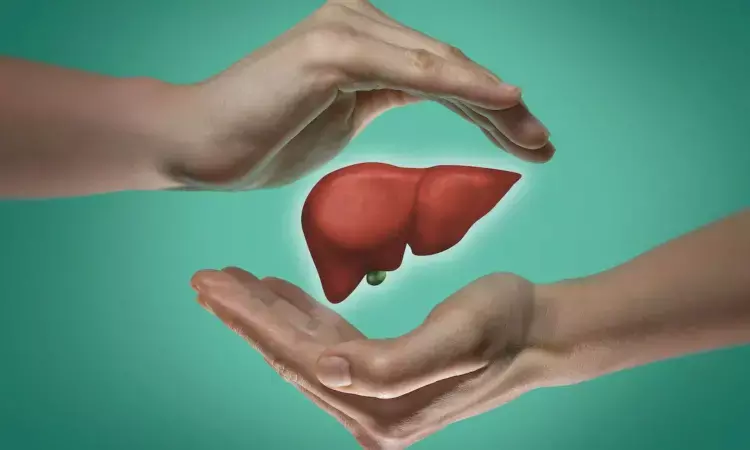- Home
- Medical news & Guidelines
- Anesthesiology
- Cardiology and CTVS
- Critical Care
- Dentistry
- Dermatology
- Diabetes and Endocrinology
- ENT
- Gastroenterology
- Medicine
- Nephrology
- Neurology
- Obstretics-Gynaecology
- Oncology
- Ophthalmology
- Orthopaedics
- Pediatrics-Neonatology
- Psychiatry
- Pulmonology
- Radiology
- Surgery
- Urology
- Laboratory Medicine
- Diet
- Nursing
- Paramedical
- Physiotherapy
- Health news
- Fact Check
- Bone Health Fact Check
- Brain Health Fact Check
- Cancer Related Fact Check
- Child Care Fact Check
- Dental and oral health fact check
- Diabetes and metabolic health fact check
- Diet and Nutrition Fact Check
- Eye and ENT Care Fact Check
- Fitness fact check
- Gut health fact check
- Heart health fact check
- Kidney health fact check
- Medical education fact check
- Men's health fact check
- Respiratory fact check
- Skin and hair care fact check
- Vaccine and Immunization fact check
- Women's health fact check
- AYUSH
- State News
- Andaman and Nicobar Islands
- Andhra Pradesh
- Arunachal Pradesh
- Assam
- Bihar
- Chandigarh
- Chattisgarh
- Dadra and Nagar Haveli
- Daman and Diu
- Delhi
- Goa
- Gujarat
- Haryana
- Himachal Pradesh
- Jammu & Kashmir
- Jharkhand
- Karnataka
- Kerala
- Ladakh
- Lakshadweep
- Madhya Pradesh
- Maharashtra
- Manipur
- Meghalaya
- Mizoram
- Nagaland
- Odisha
- Puducherry
- Punjab
- Rajasthan
- Sikkim
- Tamil Nadu
- Telangana
- Tripura
- Uttar Pradesh
- Uttrakhand
- West Bengal
- Medical Education
- Industry
Management of adult acute and acute-on-chronic liver failure in critically ill patients: Key uptakes from guidelines

USA: A recent article published in the Critical Care Medicine reports guidelines for managing adult acute and acute-on-chronic liver failure in the ICU. The article entails infectious disease, peri-transplant medicine, neurology, and gastroenterology considerations.
In the ICU, acute liver failure (ALF) and acute chronic liver failure (ACLF) are frequently encountered and are associated with high mortality. Previous recommendations for managing critically ill patients with liver disease focused on haematological, cardiovascular, renal, pulmonary, and endocrine/nutrition issues. In continuation, the authors developed evidence-based recommendations addressing infectious disease, peri-transplant, gastrointestinal and neurologic issues that present unique challenges in this population of patients.
"These guidelines are meant to supplement and not replace an individual clinician’s cognitive decision-making," Rahul Nanchal, Medical College of Wisconsin, Milwaukee, WI, and colleagues wrote in their study. "The primary goal of these guidelines is to aid best practice and not represent the standard of care."
The Society of Critical Care Medicine (SCCM) appointed co-chairs and vice-chairs to develop the guidelines. Twenty-five other panel members were chosen in accordance with their clinical and methodological expertise. The panel was then divided into nine subgroups corresponding with individual expertise; the recommendations of five of those subgroups (cardiovascular, haematology, pulmonary, renal, and endocrine) are presented.
"We developed best practice statements as ungraded strong recommendations in adherence with strict conditions," the team wrote.
The panel reported 28 recommendations on managing ALF and ACLF in the ICU related to four groups (neurology, infectious diseases, gastroenterology, and peri-transplant). Overall, five were strong recommendations, 21 were conditional recommendations, two were best-practice statements, and recommendations for five questions were not issued due to insufficient evidence. The main recommendations are given below:
- Performing esophagogastroduodenoscopy no later than 12 hr of presentation was recommended in critically ill ACLF patients with portal hypertensive bleeding (known or suspected).
- Performing large volume paracentesis with measurement of intra-abdominal pressure was recommended in critically ill ACLF patients with tense ascites and intra-abdominal hypertension or hemodynamic, renal or respiratory compromise.
- The use of antibiotic prophylaxis is recommended in critically ill ACLF patients with any type of upper gastrointestinal bleeding.
- Using albumin is recommended in critically ill ACLF patients with spontaneous bacterial peritonitis (SBP).
- They recommend octreotide or somatostatin analogue for treating portal hypertensive bleeding in critically ill ACLF patients.
- Proton pump inhibitors use is recommended in critically ill ACLF patients with portal hypertensive bleeding.
- Broad-spectrum antibiotic agents are recommended for the initial management of SBP in critically ill ACLF patients.
Reference:
Nanchal, Rahul MD, MS, FCCM (Co-Chair)1; Subramanian, Ram MD, FCCM (Co-Chair)2; Alhazzani, Waleed MBBS, MSc, FRCPC (Methods Chair, Vice Co-Chair)3; Dionne, Joanna C. MD, MS, BN3; Peppard, William J. PharmD, BCPS, FCCM4; Singbartl, Kai MD, MPH, EDIC, FCCM5; Truwit, Jonathon MD, MBA6; Al-Khafaji, Ali H. MD, MPH, FCCM7; Killian, Alley J. PharmD, BCPS2; Alquraini, Mustafa MBBS, SBEM, ABEM, MMed, CCM8; Alshammari, Khalil MBBS8; Alshamsi, Fayez MBBS8; Belley-Cote, Emilie MD3; Cartin-Ceba, Rodrigo MD, MS9; Hollenberg, Steven M. MD, FACC, FCCM, FAHA, FCCP10; Galusca, Dragos M. MD, FASA, FCCP11; Huang, David T. MD, MPH, FCCM7; Hyzy, Robert C. MD, MCCM12; Junek, Mats BSc(H), MD3; Kandiah, Prem MD2; Kumar, Gagan MD, MA, MS13; Morgan, Rebecca L. PhD, MPH14; Morris, Peter E. MD15; Olson, Jody C. MD16; Sieracki, Rita MLS6; Steadman, Randolph MD17; Taylor, Beth DCN, RDN-AP, CNSC, FCCM18; Karvellas, Constantine J. MD, MS, FRCPC, FCCM (Vice Co-Chair)19. Executive Summary: Guidelines for the Management of Adult Acute and Acute-on-Chronic Liver Failure in the ICU: Neurology, Peri-Transplant Medicine, Infectious Disease, and Gastroenterology Considerations. Critical Care Medicine 51(5):p 653-656, May 2023. | DOI: 10.1097/CCM.0000000000005825
Dr Kamal Kant Kohli-MBBS, DTCD- a chest specialist with more than 30 years of practice and a flair for writing clinical articles, Dr Kamal Kant Kohli joined Medical Dialogues as a Chief Editor of Medical News. Besides writing articles, as an editor, he proofreads and verifies all the medical content published on Medical Dialogues including those coming from journals, studies,medical conferences,guidelines etc. Email: drkohli@medicaldialogues.in. Contact no. 011-43720751


